-
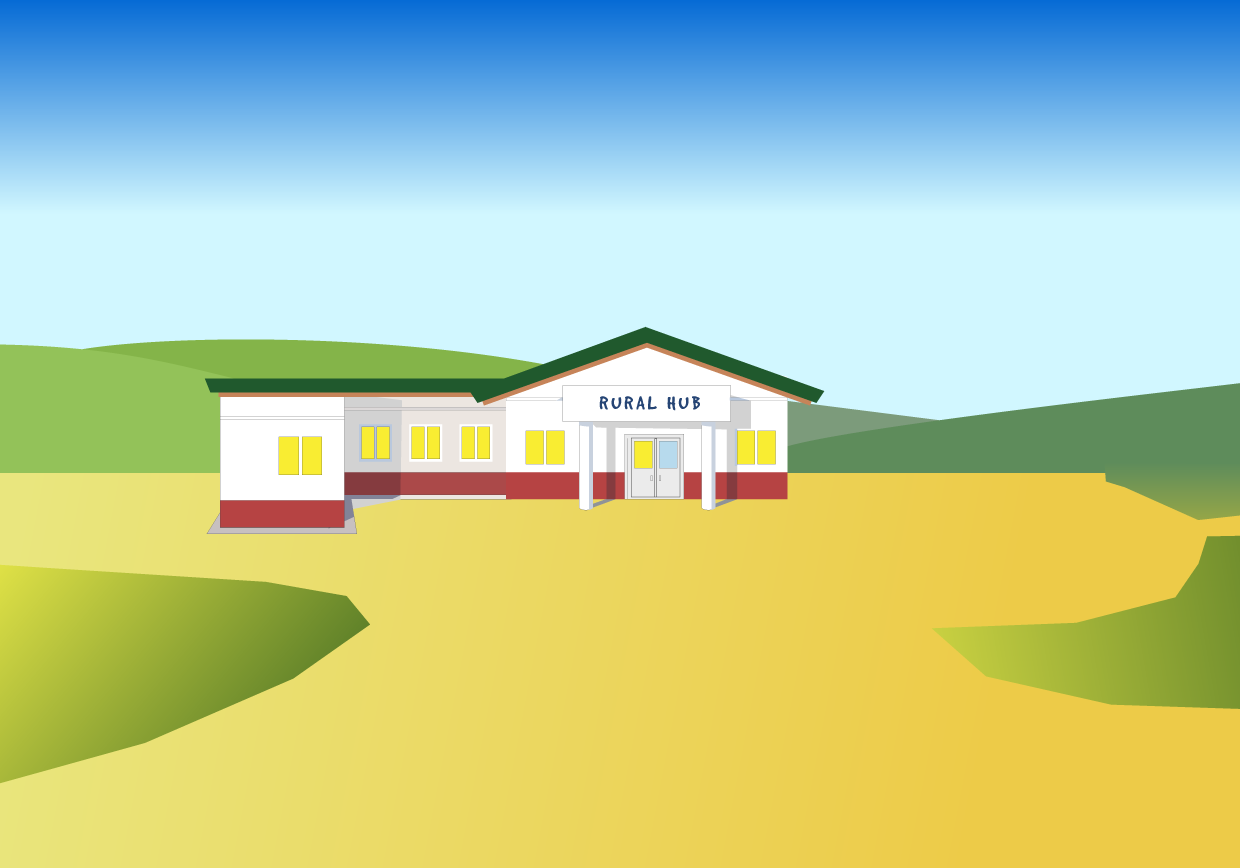






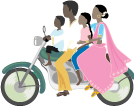
 EMPOWERING YOUTHIN BANGLADESHWatch the story >
EMPOWERING YOUTHIN BANGLADESHWatch the story > -
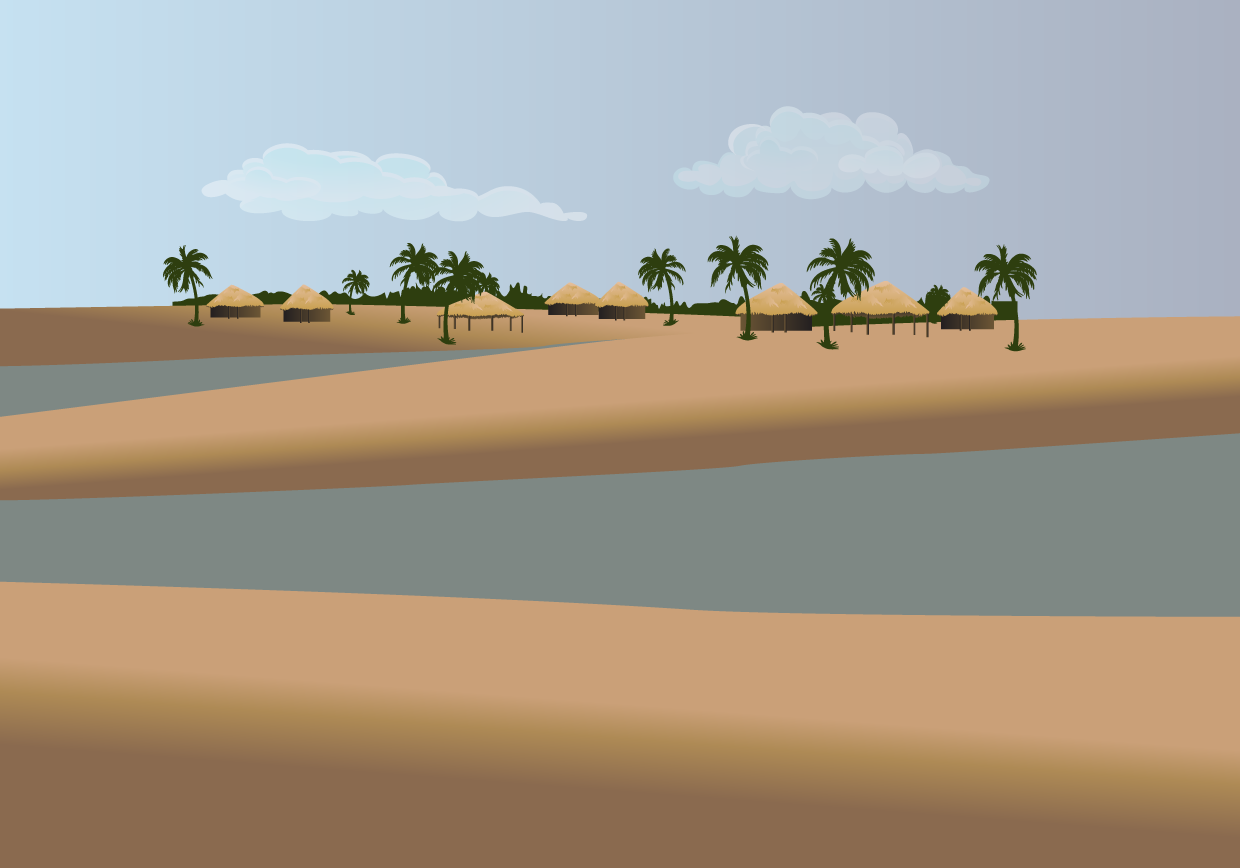
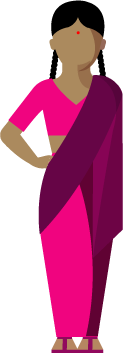



 Stage 1: Context analyzingBEING YOUNG CAN BE CHALLENGINGMany young people living in rural areas of Bangladesh face challenges that influence their development as active citizens. Especially for young women, cultural barriers, security issues and limited access to employment impacts their lives.
Stage 1: Context analyzingBEING YOUNG CAN BE CHALLENGINGMany young people living in rural areas of Bangladesh face challenges that influence their development as active citizens. Especially for young women, cultural barriers, security issues and limited access to employment impacts their lives.



 Hi, I’m 14-year old. My family treats me as if I am just an extra mouth to feed. I cannot go outside and I cannot explore the world outside my community. I feel like in two years’ time I will be married of and will remain invisible.In Bangladesh 40% of us, the young population, are unemployed...... and our skills do no match the needs of the labour market.For us women, social and cultural norms restrict us to domestic responsibilities. 74% of the unemployed are women, and gender - based violence is common and accepted.On top of that there is a high level of child marriage and little knowledge about climate change.Khulna district, BangladeshContinue >
Hi, I’m 14-year old. My family treats me as if I am just an extra mouth to feed. I cannot go outside and I cannot explore the world outside my community. I feel like in two years’ time I will be married of and will remain invisible.In Bangladesh 40% of us, the young population, are unemployed...... and our skills do no match the needs of the labour market.For us women, social and cultural norms restrict us to domestic responsibilities. 74% of the unemployed are women, and gender - based violence is common and accepted.On top of that there is a high level of child marriage and little knowledge about climate change.Khulna district, BangladeshContinue >
-
 Stage 1: Context analyzingThe challenge was set: Rural Hub BangladeshTo tackle these problems, young rural Bangladesh was included in the Empower Youth for Work (EYW) programme. This 5 year program has the ambition to promote rural job creation in 4 countries; Pakistan, Ethiopia, Indonesia and Bangladesh. The EYW in Bangladesh is in 4 districts, and for the first rural hub we chose the Khulna district. So we started organizing an exchange visit to inspire a local learning group.
Stage 1: Context analyzingThe challenge was set: Rural Hub BangladeshTo tackle these problems, young rural Bangladesh was included in the Empower Youth for Work (EYW) programme. This 5 year program has the ambition to promote rural job creation in 4 countries; Pakistan, Ethiopia, Indonesia and Bangladesh. The EYW in Bangladesh is in 4 districts, and for the first rural hub we chose the Khulna district. So we started organizing an exchange visit to inspire a local learning group.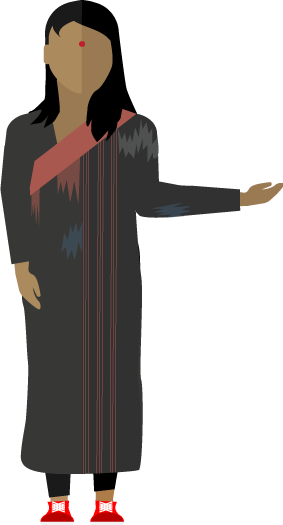
 Let’s show young women that it is possible to set up their own dreams.Project lead, Oxfam Bangladesh
Let’s show young women that it is possible to set up their own dreams.Project lead, Oxfam Bangladesh Continue >Jolly Nur Hague
Continue >Jolly Nur Hague
-
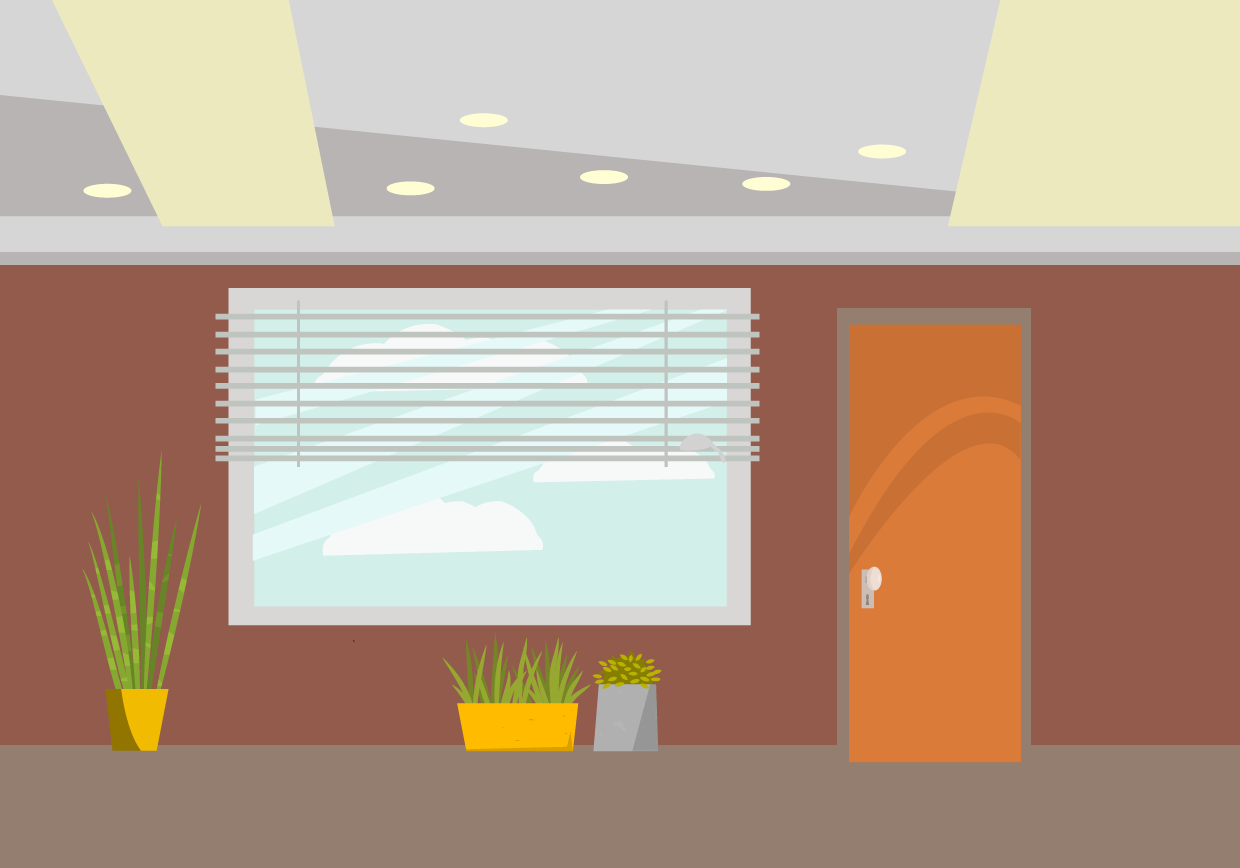 Stage 1: Context analyzingSTEP 1: THE EXPERTS
Stage 1: Context analyzingSTEP 1: THE EXPERTS

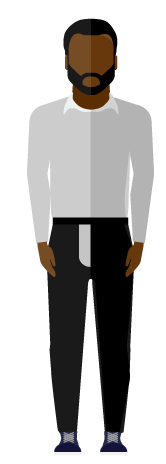









 The first thing we did was selecting a team of experts to choose possible solutions and experiences around the world to inspire young Bangladesh.I’m Nimesh Ghimire. I co-led the design and implementation of two Innovation Labs in rural Nepal. I currently work at Ashoka, a global organization that invests in world’s leading social entrepreneurs.Hi, I am Rizwaan Khambata. I co-founded the Young Entrepreneurs Project in Afghanistan. My main interest is strengthening ecosystems that engage and support youth to change their communities.I am Marc de Klerk and I am a small business, organization, and entrepreneurship development consultant. I am currently part of Innovation Star at Oxfam Novib.Continue >
The first thing we did was selecting a team of experts to choose possible solutions and experiences around the world to inspire young Bangladesh.I’m Nimesh Ghimire. I co-led the design and implementation of two Innovation Labs in rural Nepal. I currently work at Ashoka, a global organization that invests in world’s leading social entrepreneurs.Hi, I am Rizwaan Khambata. I co-founded the Young Entrepreneurs Project in Afghanistan. My main interest is strengthening ecosystems that engage and support youth to change their communities.I am Marc de Klerk and I am a small business, organization, and entrepreneurship development consultant. I am currently part of Innovation Star at Oxfam Novib.Continue > -
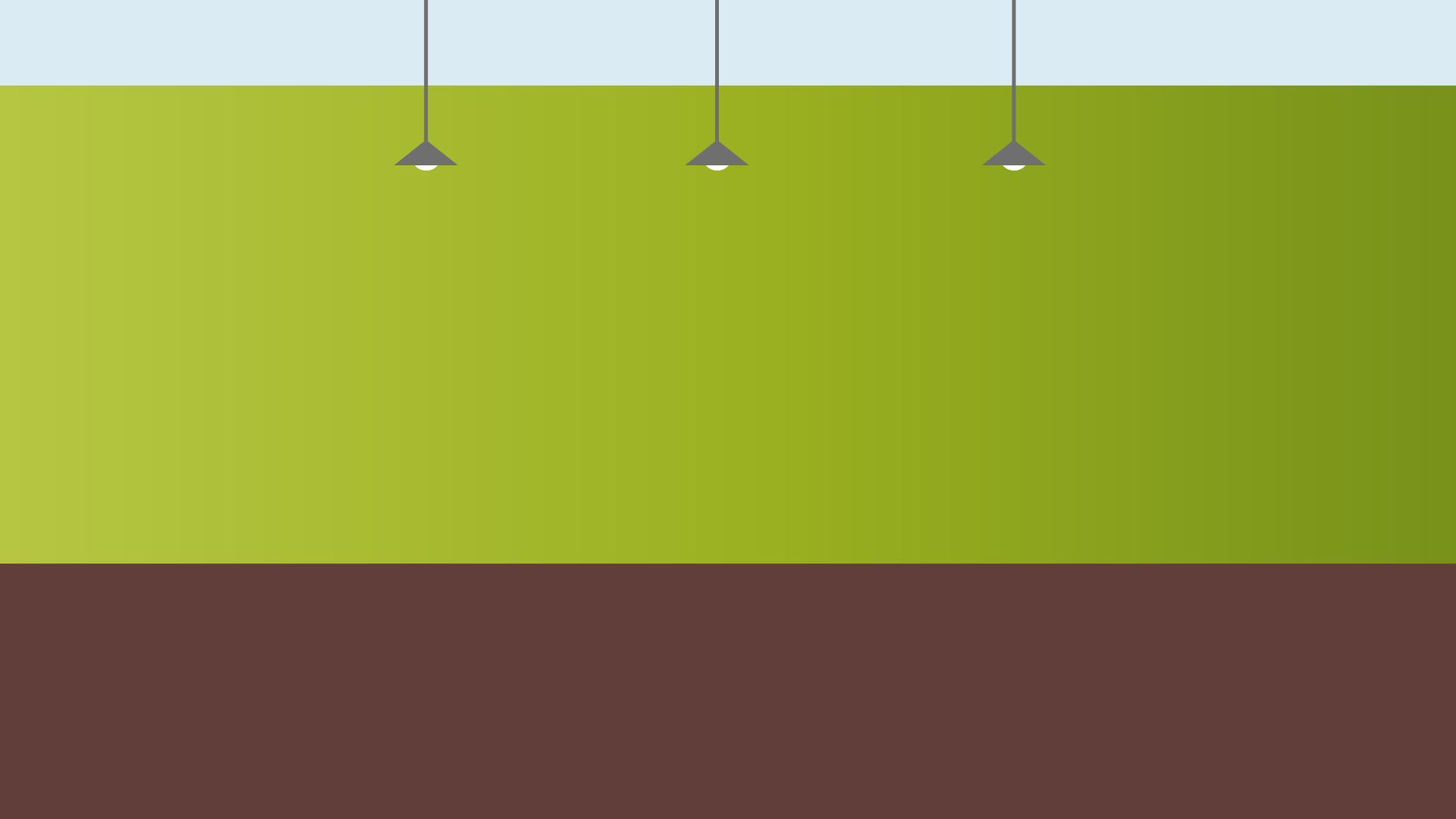
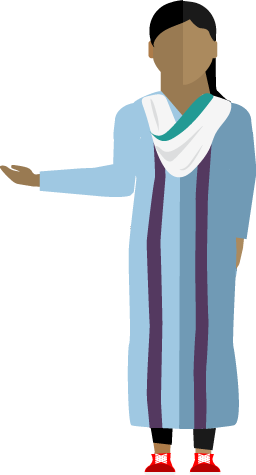 Stage 1: Context analyzingTOPICS FOR SOLUTIONSThe experts team and EYW team from Bangladesh found 4 topics for solutions that are crucial to set up rural hubs.
Stage 1: Context analyzingTOPICS FOR SOLUTIONSThe experts team and EYW team from Bangladesh found 4 topics for solutions that are crucial to set up rural hubs. Toma Rani SahaJR Project lead Oxfam Bangladesh
Toma Rani SahaJR Project lead Oxfam Bangladesh
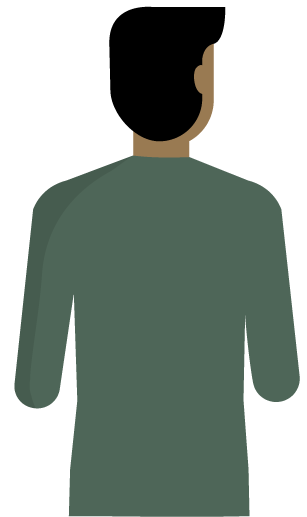

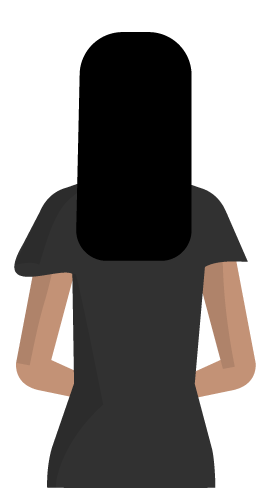 We shall have a special focus on women entrepreneurs going far beyond traditional trainings.Continue >
We shall have a special focus on women entrepreneurs going far beyond traditional trainings.Continue >

-
 Hamri Bahini+ info
Hamri Bahini+ info The Green Angels is a women empowerment movement fuelled by social enterprises. Founded in 2013 by Himalaya Climate Initiative. Kathmandu, Nepal.
The Green Angels is a women empowerment movement fuelled by social enterprises. Founded in 2013 by Himalaya Climate Initiative. Kathmandu, Nepal.
 The Barefoot College+ info
The Barefoot College+ info Connects rural communities to solar, water, education, professions and advocacy to help communities and individuals take control of their lives and the wellbeing of their communities. Founded in 1972 by Sanjit "Bunker" Roy. Tilonia, Rajasthan, India.
Connects rural communities to solar, water, education, professions and advocacy to help communities and individuals take control of their lives and the wellbeing of their communities. Founded in 1972 by Sanjit "Bunker" Roy. Tilonia, Rajasthan, India.
 The Hubli Sandbox+ info
The Hubli Sandbox+ info Is an ecosystem that supports mission-driven individuals to come up with sustainable and scalable enterprises having social and economic impact. Founded in 2008 by Deshpande Foundation India.
Is an ecosystem that supports mission-driven individuals to come up with sustainable and scalable enterprises having social and economic impact. Founded in 2008 by Deshpande Foundation India.
 The Women Rural Enterprise Accelerator Program+ info
The Women Rural Enterprise Accelerator Program+ info Uses a community-based approach to encourage women's entrepreneurship, and aims to create meaningful economic and cultural ripple effects that will increase growth and visibility of women entrepreneurs and their enterprises in rural Nepal. Founded in 2008 by DaayitwaNepal.
Uses a community-based approach to encourage women's entrepreneurship, and aims to create meaningful economic and cultural ripple effects that will increase growth and visibility of women entrepreneurs and their enterprises in rural Nepal. Founded in 2008 by DaayitwaNepal.
 The READ Centers+ info
The READ Centers+ info Help women with low-literacy levels to develop basic reading and communication skills so they can fulfill their roles as citizens, workers, and family members. Founded in 1991 by READ GlobalBhutan, India and Nepal.
Help women with low-literacy levels to develop basic reading and communication skills so they can fulfill their roles as citizens, workers, and family members. Founded in 1991 by READ GlobalBhutan, India and Nepal.
 The Business Development and Micro Venture Innovation Fund+ info
The Business Development and Micro Venture Innovation Fund+ info Extends financial support to grassroots innovators under a single signature on a simple agreement of understanding, without any collateral or a guarantor. Founded in 2003 by National Innovation Foundations India & Honey Bee Network.
Extends financial support to grassroots innovators under a single signature on a simple agreement of understanding, without any collateral or a guarantor. Founded in 2003 by National Innovation Foundations India & Honey Bee Network.
 The Northern Uganda Youth Entrepreneurship+ info
The Northern Uganda Youth Entrepreneurship+ info Targets five conflict-affected sub-regions in the North of Uganda with a view to improving the livelihoods of young people and their households through entrepreneurship Founded in 2013 by Enterprise Uganda & Youth Business International. Uganda.
Targets five conflict-affected sub-regions in the North of Uganda with a view to improving the livelihoods of young people and their households through entrepreneurship Founded in 2013 by Enterprise Uganda & Youth Business International. Uganda.
 The Sote Hub+ info
The Sote Hub+ info Is a business incubator for graduates, exposing them to mentorship, training, and networking opportunities. Founded in 2015 by David Ogiga and Jakub Simek. Kenya.
Is a business incubator for graduates, exposing them to mentorship, training, and networking opportunities. Founded in 2015 by David Ogiga and Jakub Simek. Kenya.
 Sawa World+ info
Sawa World+ info Is a globally awarded NGO for using an innovative approach to provide large-scale access to local solutions that can instantly encourage marginalized youth to start a business in one day. Founded in 2007 by Daphne Nederhorst
Is a globally awarded NGO for using an innovative approach to provide large-scale access to local solutions that can instantly encourage marginalized youth to start a business in one day. Founded in 2007 by Daphne Nederhorst
 MKUBWA Tanzania Virtual Business Incubator+ info
MKUBWA Tanzania Virtual Business Incubator+ info Offers a comprehensive package of services designed to support, facilitate and accelerate the growth of women's entrepreneurship. Founded in 2009 by the Italian Association for Women Development (AIDOS). Piloted and adapted by Tanzania Gatsby Trust. Tanzania
Offers a comprehensive package of services designed to support, facilitate and accelerate the growth of women's entrepreneurship. Founded in 2009 by the Italian Association for Women Development (AIDOS). Piloted and adapted by Tanzania Gatsby Trust. Tanzania
 Sukanya+ info
Sukanya+ info Is a social value chain of the retail business that is managed and created by disadvantaged women. Founded in 2005 by Aparna Banerjee. India.
Is a social value chain of the retail business that is managed and created by disadvantaged women. Founded in 2005 by Aparna Banerjee. India.
 + info
+ info Addresses socio-economic issues for underprivileged girls and women in Nepal through adventure tourism and sports. Founded in 1998, by Lucky Chhetri, Dicky Chhetri and Nicky Cheer. Pokhara, Nepal.
Addresses socio-economic issues for underprivileged girls and women in Nepal through adventure tourism and sports. Founded in 1998, by Lucky Chhetri, Dicky Chhetri and Nicky Cheer. Pokhara, Nepal.
 3 Sisters Adventure TrekkingStage 2: Solutions findingA WORLD OF SOLUTIONSWe worked on a selection of solutions from around to world and presented it to the Bangladesh team, who chose the solutions most suitable for their local context.Click photos to see description
3 Sisters Adventure TrekkingStage 2: Solutions findingA WORLD OF SOLUTIONSWe worked on a selection of solutions from around to world and presented it to the Bangladesh team, who chose the solutions most suitable for their local context.Click photos to see description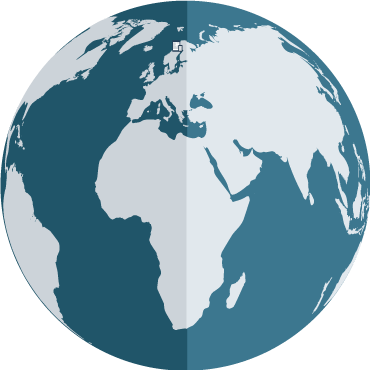























 Continue >
Continue > -

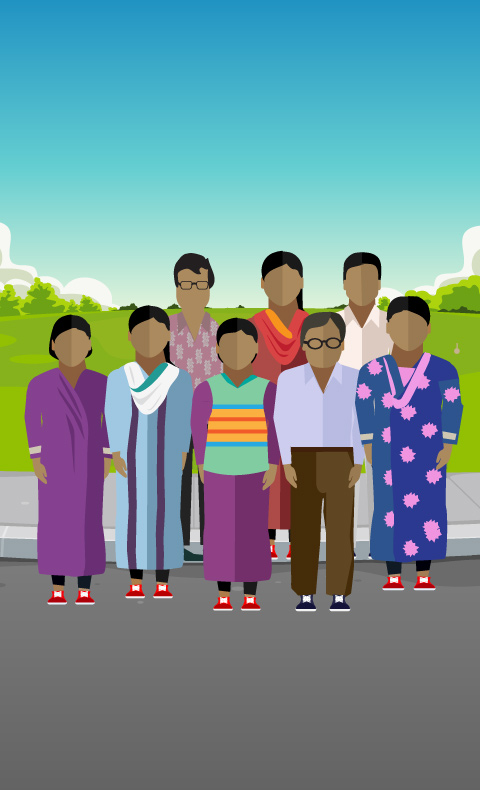
 Stage 3: Match makingTEAM DNA: TALENT & DIVERSITYThe time was ready to form a learning group with powerful actors out of EYW project in the KHULNA district
Stage 3: Match makingTEAM DNA: TALENT & DIVERSITYThe time was ready to form a learning group with powerful actors out of EYW project in the KHULNA district
 We are project leaders and local partners for the Khulna Hossain community
We are project leaders and local partners for the Khulna Hossain community
 We give technical assistance to all the participants.
We give technical assistance to all the participants.
 We are the youth representatives for our local community.
We are the youth representatives for our local community. I am the government representative in the project.
I am the government representative in the project. I encourage women to become entrepreneurs.
I encourage women to become entrepreneurs.






 Continue >Lokman Hossain Project leader,
Continue >Lokman Hossain Project leader,
Local partnerDulali Bakshi Female youngster
From local communitySuman Golder Male youngster,
From local communityKamona Roy Project leader
Local partnerToma Rani Saha JR Project lead
Oxfam BangladeshJolly Nur Hague Project lead,
Oxfam BangladeshManaranjan Mandal
District chairmanLasmi Halder Local female
entrepreneur
-

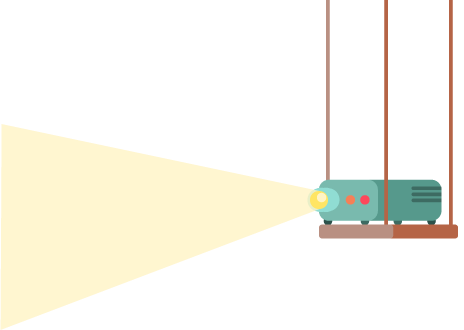
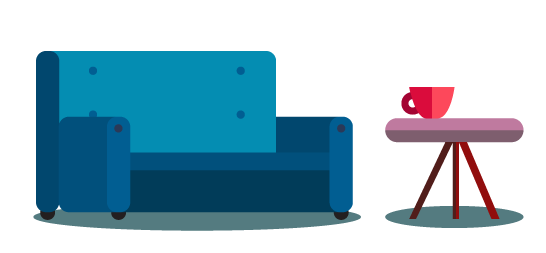

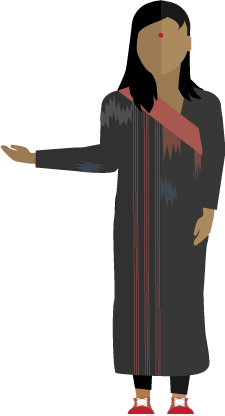
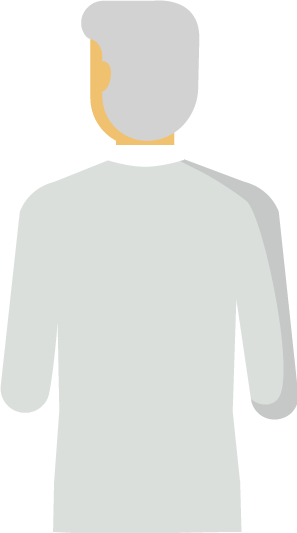
 Stage 4: Foster programmingPREPARING THE TRIPThe team chose 3 projects from India for a learning exchange, for which our experts group made a tailor made program.
Stage 4: Foster programmingPREPARING THE TRIPThe team chose 3 projects from India for a learning exchange, for which our experts group made a tailor made program.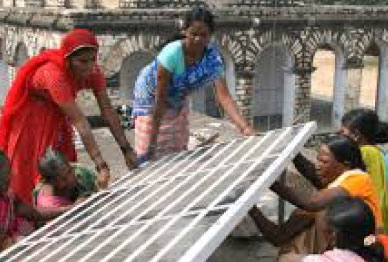
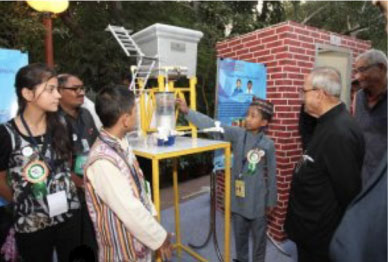
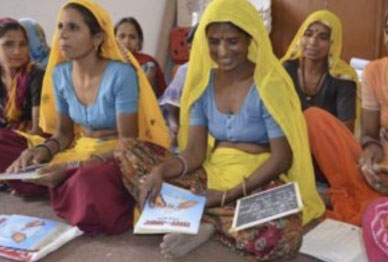

 Barefoot College shows that everyone has power and knowledge within them. The women at Barefoot College are often illiterate, but become experts solving local urgent issues.Barefoot collegeHoney Bee NetworkREAD CentreClick project for info:Continue >
Barefoot College shows that everyone has power and knowledge within them. The women at Barefoot College are often illiterate, but become experts solving local urgent issues.Barefoot collegeHoney Bee NetworkREAD CentreClick project for info:Continue > "Minds on the margin, are not marginal minds" Honey Bee network shows us that knowledge is not something that can only be found at universities. Local people in rural communities are full of innovative ideas and solutions.READ Centres are completely run by the community; from painting the building to the management. They have a library, a computer room, women's section, training hall and even a daycare for children.Honey Bee NetworkBarefoot collegeREAD CentreExciting! What will we learn there?
"Minds on the margin, are not marginal minds" Honey Bee network shows us that knowledge is not something that can only be found at universities. Local people in rural communities are full of innovative ideas and solutions.READ Centres are completely run by the community; from painting the building to the management. They have a library, a computer room, women's section, training hall and even a daycare for children.Honey Bee NetworkBarefoot collegeREAD CentreExciting! What will we learn there?

-
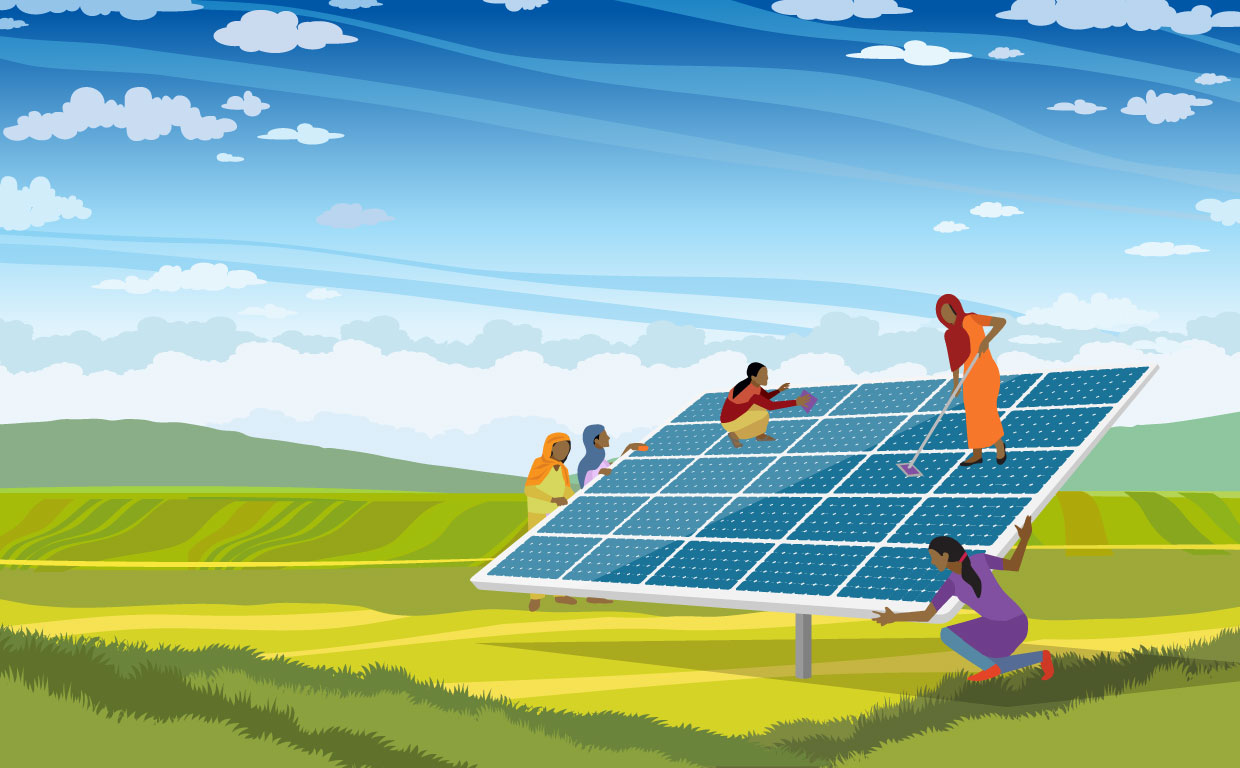
 What we learnt at Barefoot CollageNo service should be given free of charge. There should be no charity in the name of development.Give training and education (involving youngsters) to the illiterate and semi-illiterate village mother and grandmothers. They own the community, will not migrate and are the most neglected people.Demystification of the sensitive technologies can be a solution to train-up illiterate people and make them empowered.To reduce the inequality, the interaction between the center and its target populations had to be informal, without of any kind of hierarchies.
What we learnt at Barefoot CollageNo service should be given free of charge. There should be no charity in the name of development.Give training and education (involving youngsters) to the illiterate and semi-illiterate village mother and grandmothers. They own the community, will not migrate and are the most neglected people.Demystification of the sensitive technologies can be a solution to train-up illiterate people and make them empowered.To reduce the inequality, the interaction between the center and its target populations had to be informal, without of any kind of hierarchies. Our Barefoot College learning ProgramHow to harvest rainwater?Meeting the founder Bunker Roy.Learning the methodology.It starts with the sun! A workshop by the Solar Mamas.The source of all life: water.Making your own menstruation pads.Live on air. Visiting the community radio studio.Using a puppet theatre to tell important stories.
Our Barefoot College learning ProgramHow to harvest rainwater?Meeting the founder Bunker Roy.Learning the methodology.It starts with the sun! A workshop by the Solar Mamas.The source of all life: water.Making your own menstruation pads.Live on air. Visiting the community radio studio.Using a puppet theatre to tell important stories.

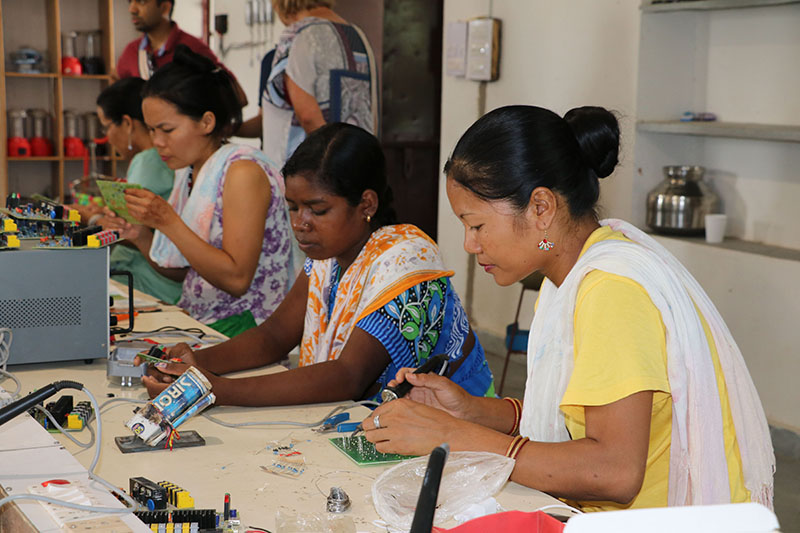








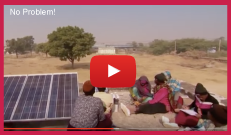 Stage 5: Exchange facilitatingBAREFOOT COLLEGEThe 10 day visit to India began. First they visited the Barefoot College, which focuses on local urgent issues: clean water, solar energy and health knowledge. After the visit there was a collective reflection session to share what they had learned.Learning ProgramWhat we learnt
Stage 5: Exchange facilitatingBAREFOOT COLLEGEThe 10 day visit to India began. First they visited the Barefoot College, which focuses on local urgent issues: clean water, solar energy and health knowledge. After the visit there was a collective reflection session to share what they had learned.Learning ProgramWhat we learnt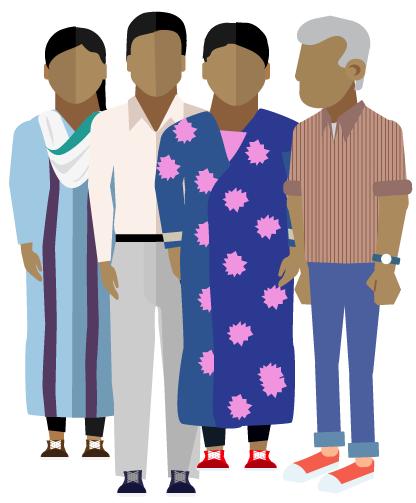




 Mr Roy, how this initiative born?The initial idea was to bring out the knowledge skills and wisdom of very old people that have much to give to their own development.It’s amazing how the unprivileged illiterate women of Villa Tilonia received training and became architects and engineers.If I can motivate the women of my village to engage in economic activities like these, they will be empowered and respected in our society.Bunker Roy Founder Barefoot collageContinue >
Mr Roy, how this initiative born?The initial idea was to bring out the knowledge skills and wisdom of very old people that have much to give to their own development.It’s amazing how the unprivileged illiterate women of Villa Tilonia received training and became architects and engineers.If I can motivate the women of my village to engage in economic activities like these, they will be empowered and respected in our society.Bunker Roy Founder Barefoot collageContinue >
-

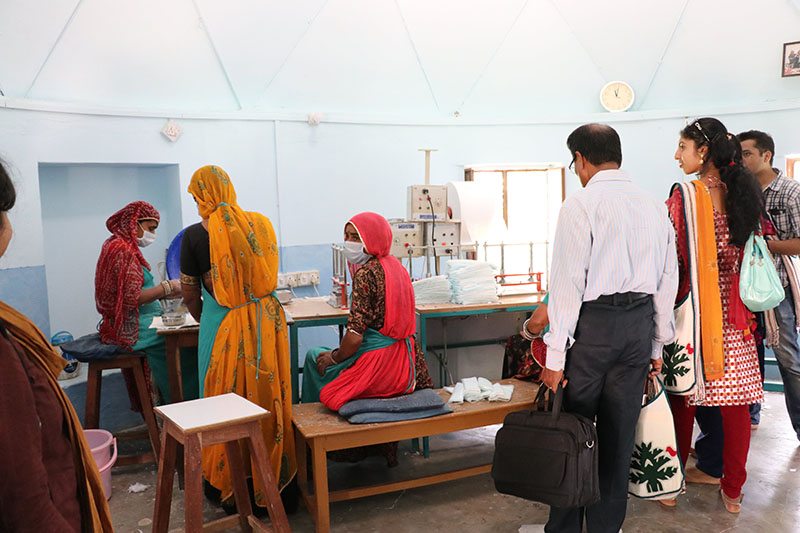 Our Honey bee learning ProgrammeMeeting with the founder.Learning the methodology.Back to college! An inspiring lecture by professors.How did you do it? Personal stories of 27 innovative solutions by 27 women.Visiting the labs and learning about herbs, medicines, flowers, and roots.Testing in practice. The workplace where technical innovation - for example for less-abled bodies - are tested.Where it all started. Going back to the rural community.
Our Honey bee learning ProgrammeMeeting with the founder.Learning the methodology.Back to college! An inspiring lecture by professors.How did you do it? Personal stories of 27 innovative solutions by 27 women.Visiting the labs and learning about herbs, medicines, flowers, and roots.Testing in practice. The workplace where technical innovation - for example for less-abled bodies - are tested.Where it all started. Going back to the rural community. Cross-pollination of ideas in very important. The grassroot innovators, farmers, scholars, academics, policy makers, entrepreneurs and non-governmental organizations can work together.The marginal people have many innovative ideas. Support them to promote, scale up, validate, assessment and sustain.The rural woman can develop group entrepreneurship in rural areas. They might need support for identifying the demands, value proposition, marketing, quality ensuring etc.Recognition is very important.
Cross-pollination of ideas in very important. The grassroot innovators, farmers, scholars, academics, policy makers, entrepreneurs and non-governmental organizations can work together.The marginal people have many innovative ideas. Support them to promote, scale up, validate, assessment and sustain.The rural woman can develop group entrepreneurship in rural areas. They might need support for identifying the demands, value proposition, marketing, quality ensuring etc.Recognition is very important. What we have learned from Honey Bee Network
What we have learned from Honey Bee Network

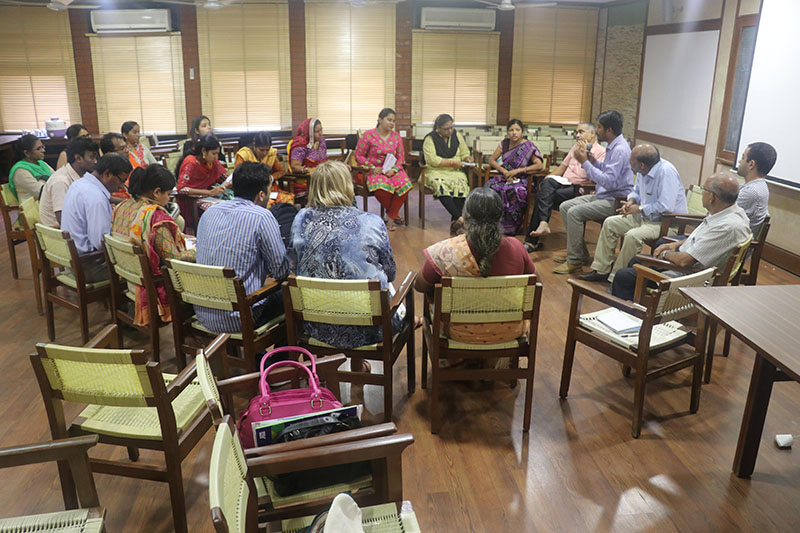
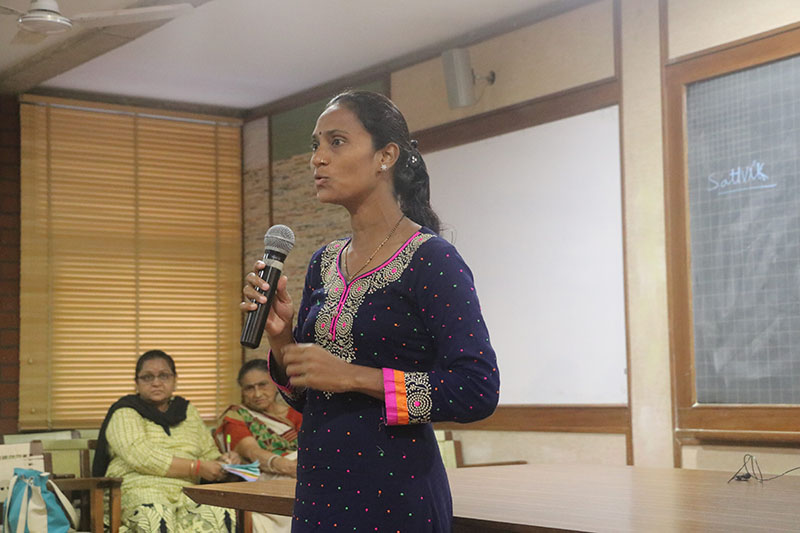
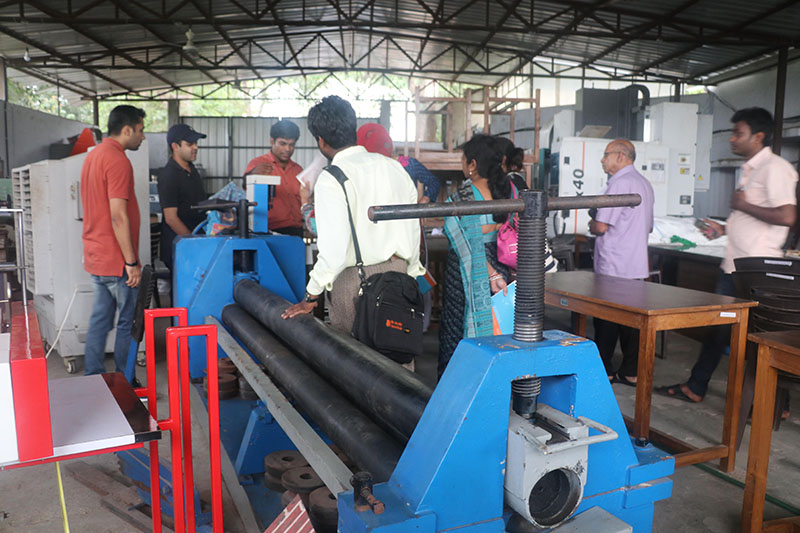





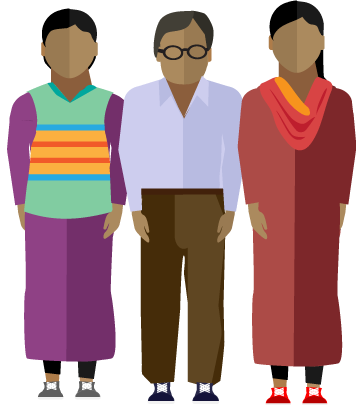
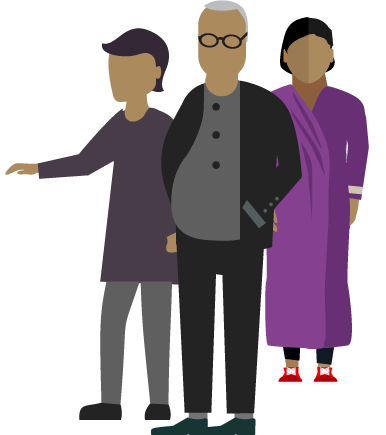 Stage 5: Exchange facilitatingHONEY BEE NETWORKThe second visit was to Honey Bee Network, which scouts innovative rural ideas and offers technical support and marketing strategy while assuring that ownership of the innovation stays with the rural women. It’s a unique collaboration between rural communities and a national certified University, and it has collected over 275000 innovative ideas and practices, including solutions for sexual and reproductive health issues like sanitary pads.
Stage 5: Exchange facilitatingHONEY BEE NETWORKThe second visit was to Honey Bee Network, which scouts innovative rural ideas and offers technical support and marketing strategy while assuring that ownership of the innovation stays with the rural women. It’s a unique collaboration between rural communities and a national certified University, and it has collected over 275000 innovative ideas and practices, including solutions for sexual and reproductive health issues like sanitary pads.

 We work specially with rural women and through our unique model of group entrepreneurship, these solutions are brought to the next level.By technical support and license, the right machines and materials and marketing strategies from University, we can improve and scale our own rural innovarionsIn my village, girls don’t know much about sexual reproductive health. Through working on this issue I can contribute to the development of our society.Learning ProgramWhat we learntContinue >
We work specially with rural women and through our unique model of group entrepreneurship, these solutions are brought to the next level.By technical support and license, the right machines and materials and marketing strategies from University, we can improve and scale our own rural innovarionsIn my village, girls don’t know much about sexual reproductive health. Through working on this issue I can contribute to the development of our society.Learning ProgramWhat we learntContinue > -
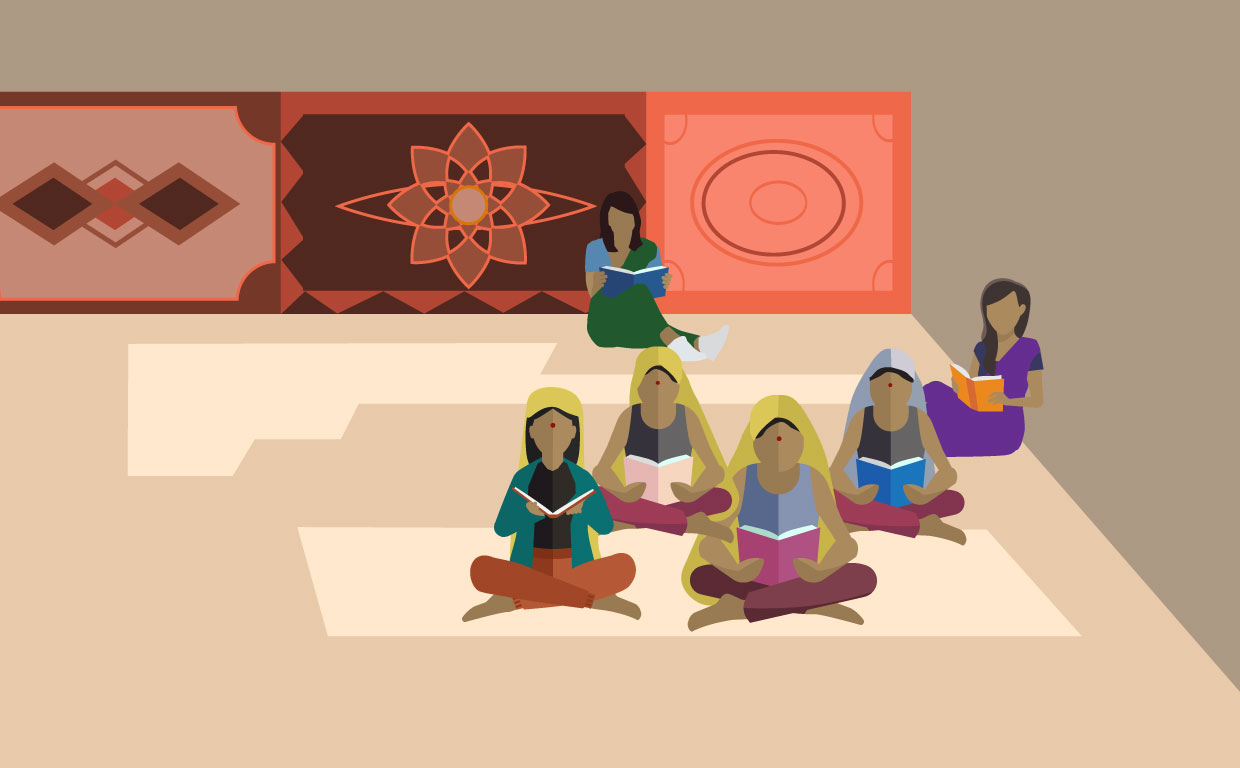
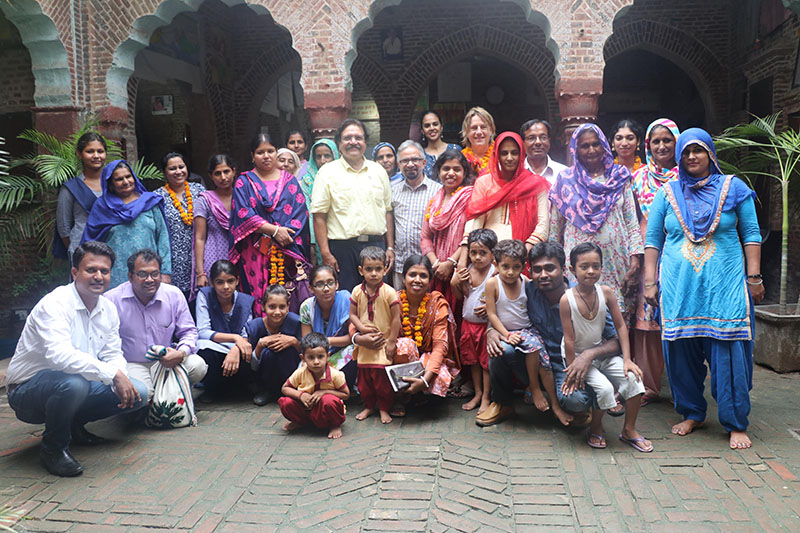 Meeting with the directors.Learning the methodology.A short history of impressive results.Going rural! Visiting 4 different READ Centers in 4 different set-up phases in 4 different rural areas.Meeting the women who run the place.An explanation of the trainings and teachings.
Meeting with the directors.Learning the methodology.A short history of impressive results.Going rural! Visiting 4 different READ Centers in 4 different set-up phases in 4 different rural areas.Meeting the women who run the place.An explanation of the trainings and teachings. Our READ CENTRE learning ProgrammeWhat we have learned from READ CentreOwnership of community people is important to run the centers or initiatives effectively.The center should have its own income generating mechanisms to support the ongoing costs.The centre should be located in nearby areas of the community people, so that the female youths can move safely.Develop a integrated center where many facilities will be available for community people and they will be attracted.Provide trainings and mentoring support and motivate the community's youths to find job opportunities by themselves.
Our READ CENTRE learning ProgrammeWhat we have learned from READ CentreOwnership of community people is important to run the centers or initiatives effectively.The center should have its own income generating mechanisms to support the ongoing costs.The centre should be located in nearby areas of the community people, so that the female youths can move safely.Develop a integrated center where many facilities will be available for community people and they will be attracted.Provide trainings and mentoring support and motivate the community's youths to find job opportunities by themselves.

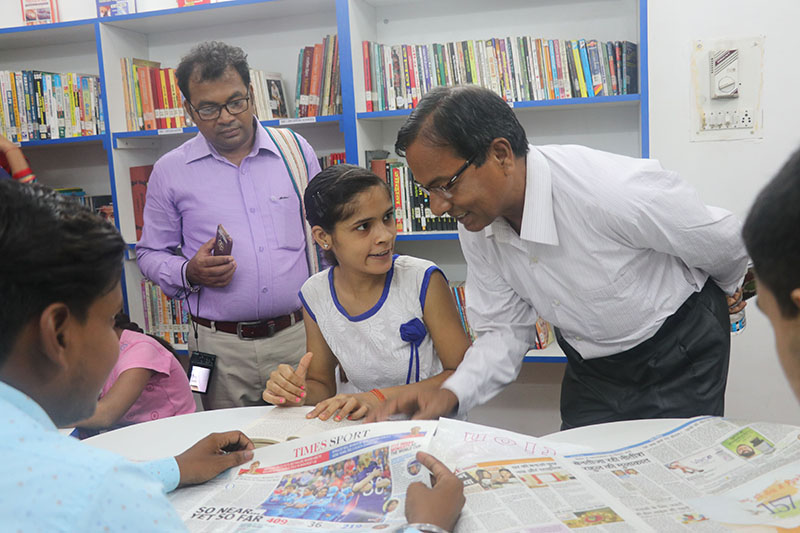
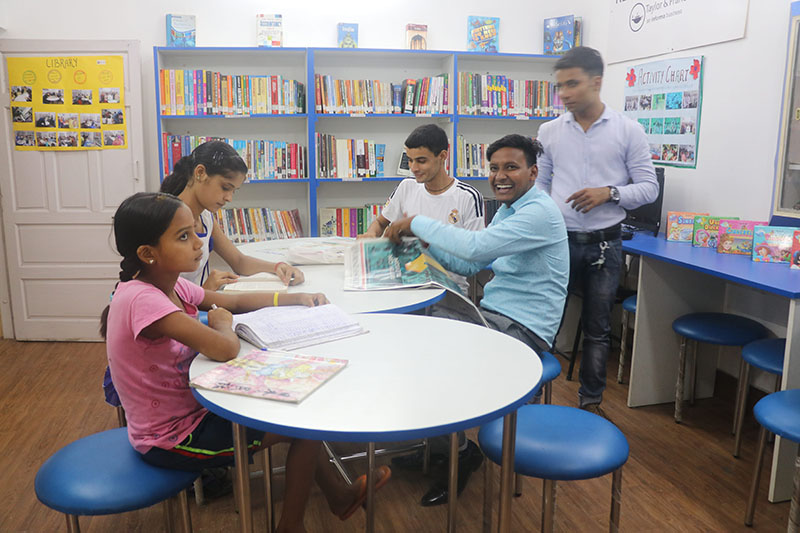
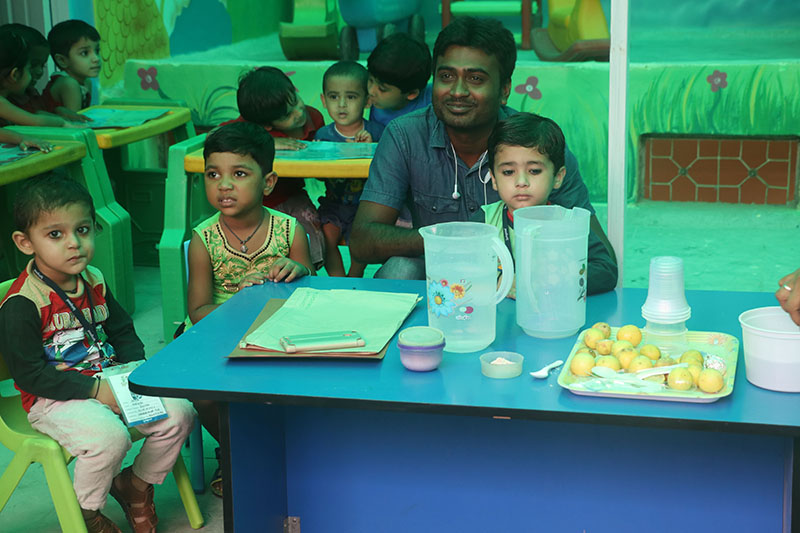
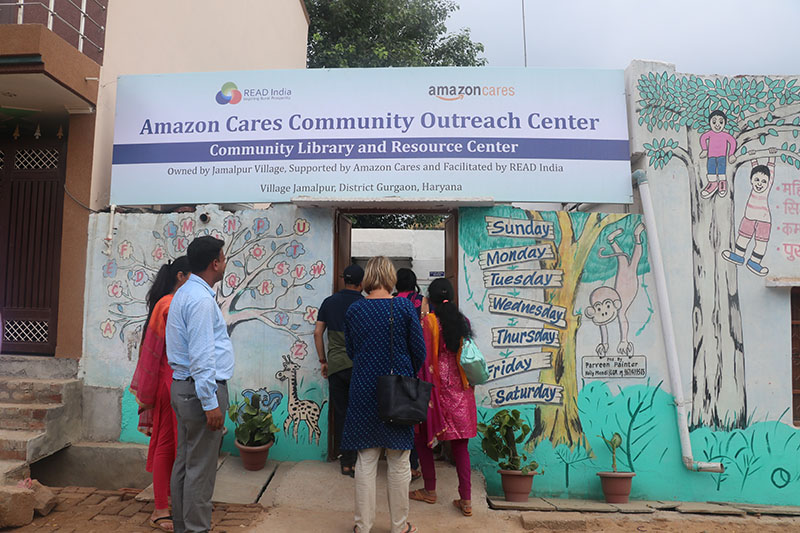





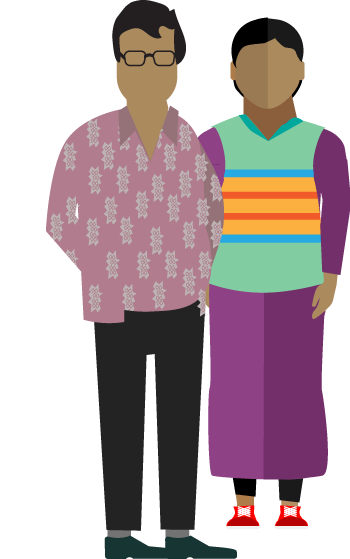 Stage 5: Exchange facilitatingVISITING READ GLOBALWith 102 community owned centres, Read Global offers access to information, job recruiting and child care. Community members work on their own enterprises, such as a community radio, a sewing cooperative and agricultural cooperatives. The centre´s owned enterprises make them sustainable.
Stage 5: Exchange facilitatingVISITING READ GLOBALWith 102 community owned centres, Read Global offers access to information, job recruiting and child care. Community members work on their own enterprises, such as a community radio, a sewing cooperative and agricultural cooperatives. The centre´s owned enterprises make them sustainable.

 What is our secret? First, research is done on what is needed for the community and the larger environment.Then we gather a group of women and find a larger company or enterprise that can provide focused trainings and provide the necessary materials and technologies. Then we let the women do the rest.That's great! The lesson is “You have to start with a dream”, start with an aspiration to do something for your community!Learning ProgramWhat we learnt
What is our secret? First, research is done on what is needed for the community and the larger environment.Then we gather a group of women and find a larger company or enterprise that can provide focused trainings and provide the necessary materials and technologies. Then we let the women do the rest.That's great! The lesson is “You have to start with a dream”, start with an aspiration to do something for your community!Learning ProgramWhat we learnt Continue >I find it really inspiring how these organizations are engaging community people in the development process.
Continue >I find it really inspiring how these organizations are engaging community people in the development process. -

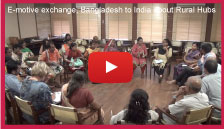 Stage 5: Exchange facilitatingTurning it into an action planVideo of the exchange visitTo consolidate what was learnt, the team spent the last day formulating an action plan with ideas on how to implement it in Bangladesh.Continue >
Stage 5: Exchange facilitatingTurning it into an action planVideo of the exchange visitTo consolidate what was learnt, the team spent the last day formulating an action plan with ideas on how to implement it in Bangladesh.Continue >
-


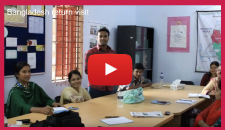 Stage 6: Knowledge sharingTHE RETURN VISITThree months after their visit to India, representatives of READ Centre and Honey Bee Network visited the learning group in Bangladesh to see what had been achieved. In a 3-day programme, they helped implement the learnings further by giving suggestions and new ideas.
Stage 6: Knowledge sharingTHE RETURN VISITThree months after their visit to India, representatives of READ Centre and Honey Bee Network visited the learning group in Bangladesh to see what had been achieved. In a 3-day programme, they helped implement the learnings further by giving suggestions and new ideas. We are sharing ideas among the youth, community people and government. Young people have already started disseminating the message and implementing innovative ideas. We have also created income opportunities for women and motivated community ownership in development activities.
We are sharing ideas among the youth, community people and government. Young people have already started disseminating the message and implementing innovative ideas. We have also created income opportunities for women and motivated community ownership in development activities. Nahid Jobair, READ India
Nahid Jobair, READ India Anamika Dey Honey Bee Network, IndiaContinue >
Anamika Dey Honey Bee Network, IndiaContinue >
-

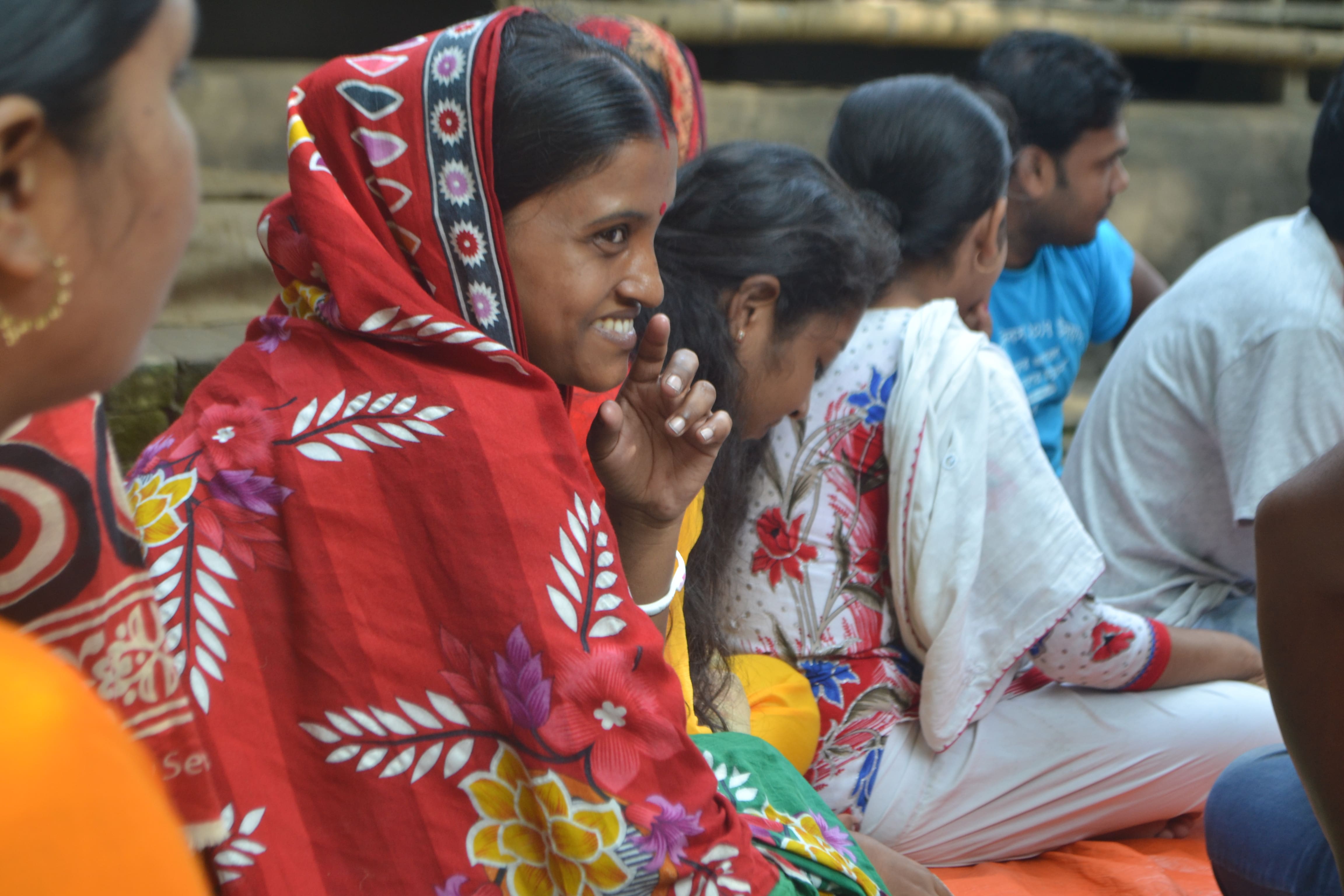

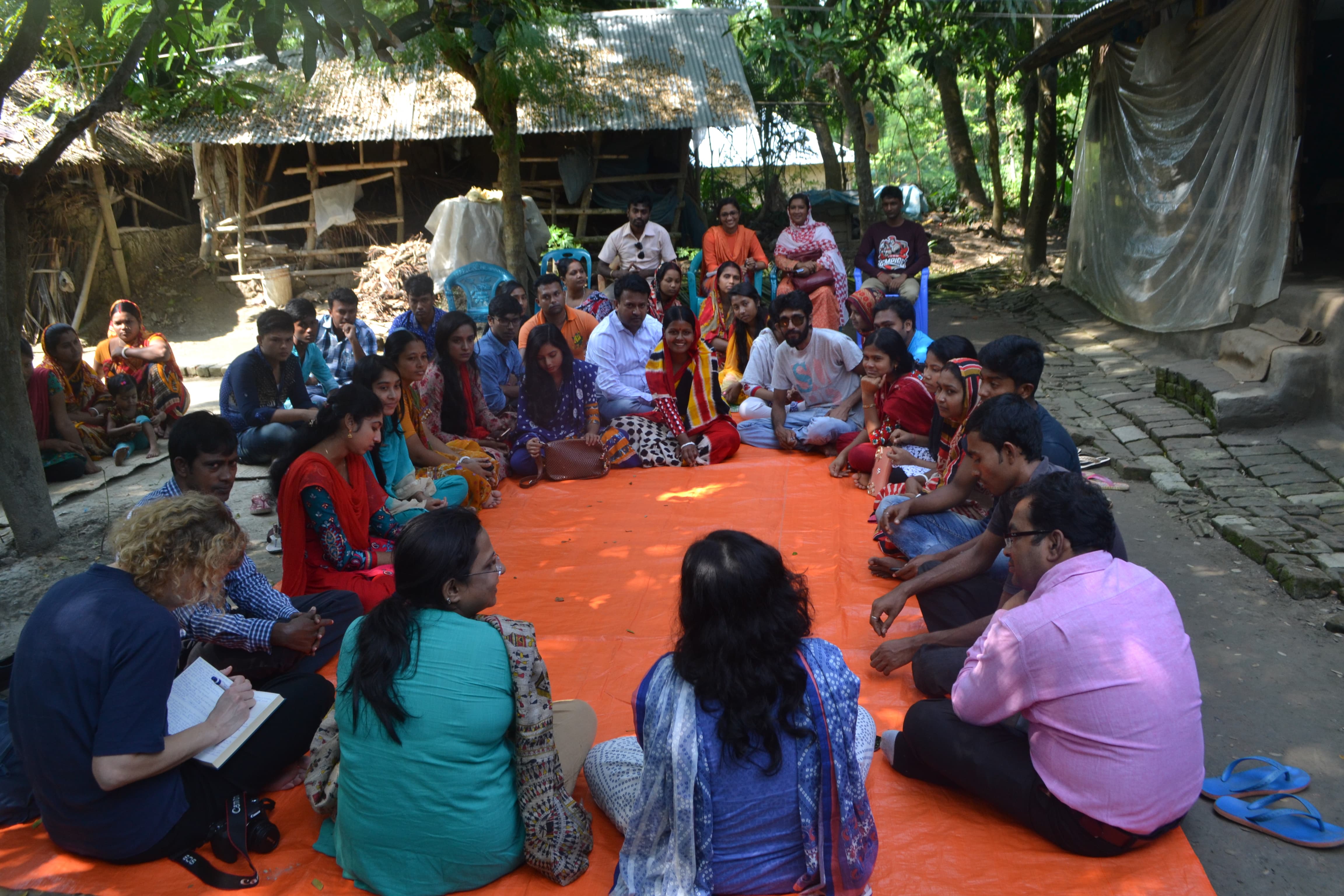
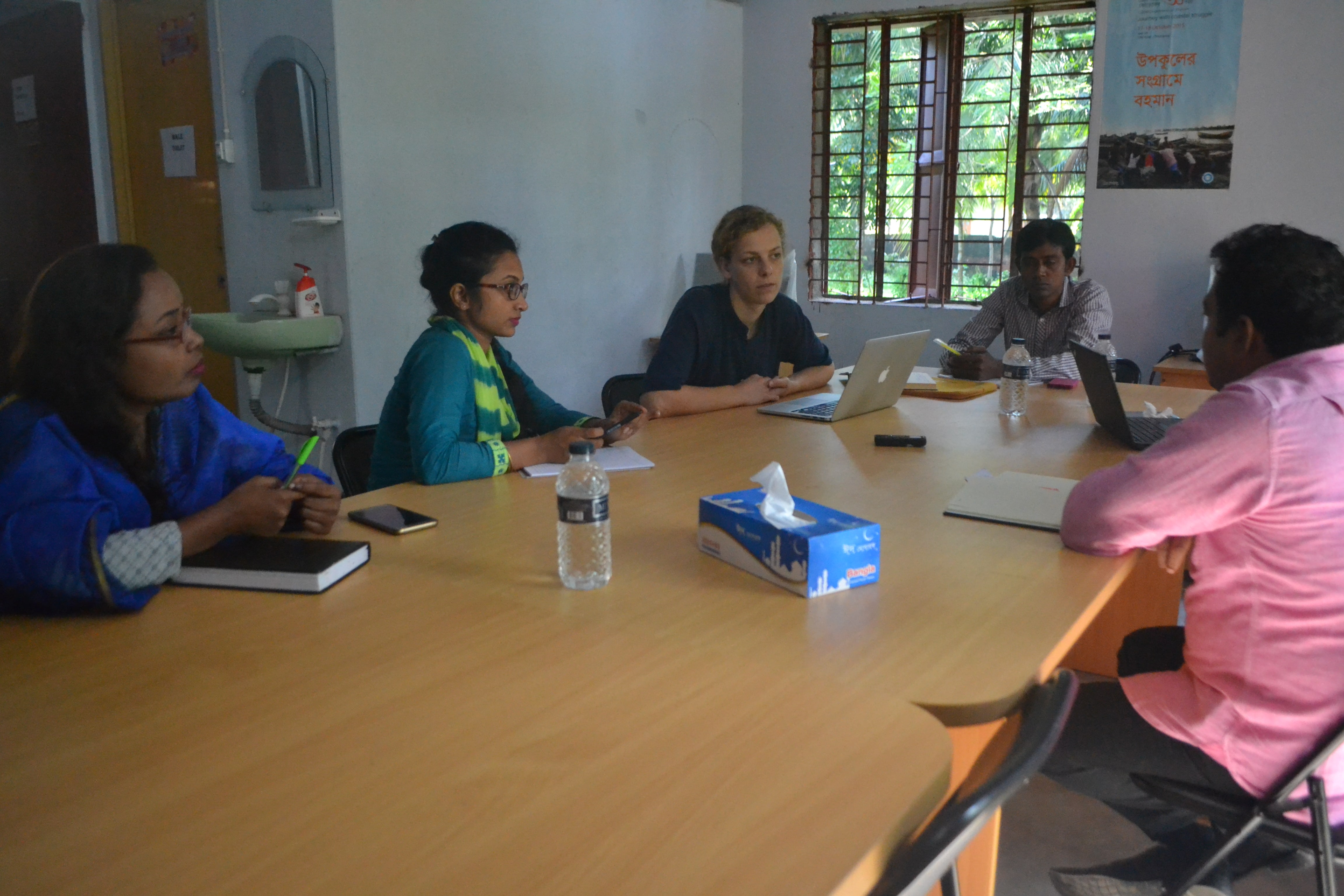
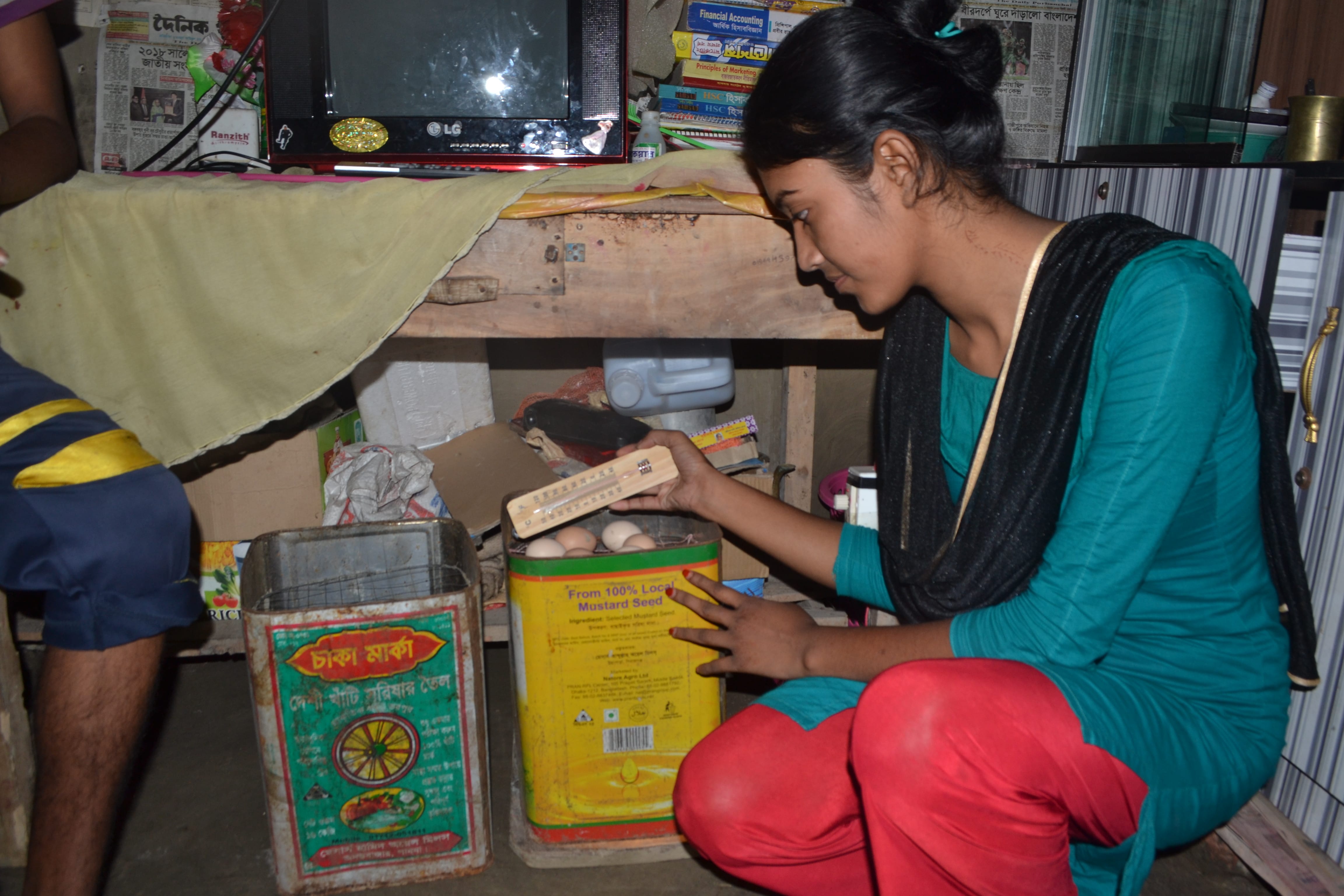







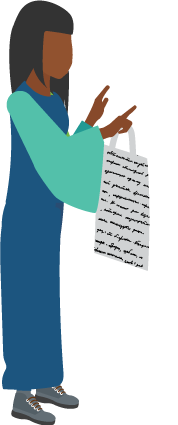
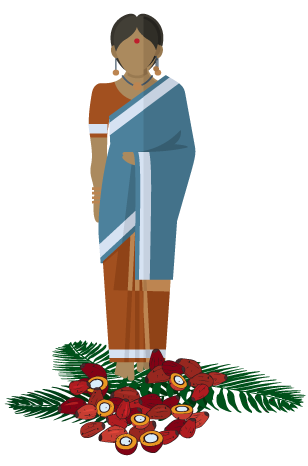 Stage 6: Knowledge sharingBangladeshi projects
Stage 6: Knowledge sharingBangladeshi projects We are disseminating the message through shopping bags and stickers, on topics such as child marriage and sexual and reproductive health and rights.
We are disseminating the message through shopping bags and stickers, on topics such as child marriage and sexual and reproductive health and rights.
 We’ve built a community owned new school for children.We are creating job opportunities by planting dragon fruit.Continue >
We’ve built a community owned new school for children.We are creating job opportunities by planting dragon fruit.Continue >
 And we are developing a palm seed plantation to mitigate the effects of thunderstorms.Learn More
And we are developing a palm seed plantation to mitigate the effects of thunderstorms.Learn More
-
 And our collaboration has just begun …
And our collaboration has just begun …
 We are full of dreams and ready to take action, you can follow our developments on the Empower Youth for Work website.VisitJoin ourEmpower Youth for WorkFacebook groupDownload PDF
We are full of dreams and ready to take action, you can follow our developments on the Empower Youth for Work website.VisitJoin ourEmpower Youth for WorkFacebook groupDownload PDF
